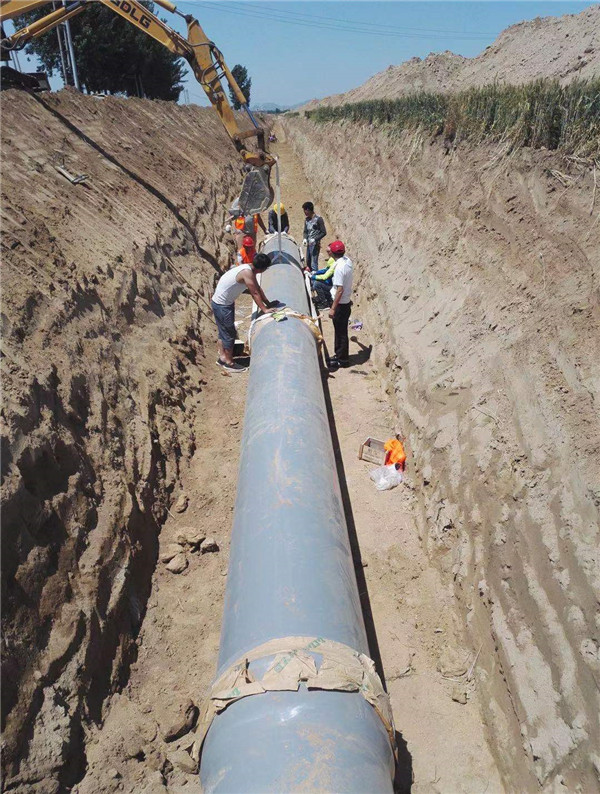Eki . 12, 2024 06:05 Back to list
Understanding the Benefits and Applications of PVC-M Pipes in Modern Construction
Understanding PVC-M Pipes Characteristics and Applications
Polyvinyl chloride modified (PVC-M) pipes have gained considerable attention in various industries due to their unique properties and advantages over traditional piping materials. PVC-M is a variant of standard PVC that undergoes a modification process to enhance its physical and mechanical properties, making it more suitable for specific applications, particularly in water supply and drainage systems.
What is PVC-M?
PVC-M is a thermoplastic material, derived from the polymerization of vinyl chloride. The M in PVC-M stands for modified, indicating that this type of PVC has undergone certain modifications to improve its performance. The primary modifications involve the addition of impact modifiers and other additives that enhance elasticity, reduce brittleness, and improve resistance to environmental stressors.
Key Characteristics of PVC-M Pipes
1. Enhanced Durability One of the most notable attributes of PVC-M pipes is their excellent resistance to impact and fatigue. This characteristic makes them a preferred choice in areas prone to seismic activities or heavy vehicular traffic.
2. Corrosion Resistance Unlike metal pipes, PVC-M pipes do not corrode, rust, or degrade when exposed to various chemicals. This makes them highly suitable for transporting aggressive fluids, whether they are acidic, alkaline, or neutral.
3. Lightweight PVC-M pipes are significantly lighter than traditional materials like steel or concrete. Their lightweight nature facilitates easy handling and installation, reducing labor costs and transportation expenses.
4. Smooth Interior Surface The smooth surface of PVC-M pipes minimizes friction loss, allowing for efficient flow of fluids. This characteristic also reduces the likelihood of sediment buildup, prolonging the lifespan of the system.
pvc-m pipe

5. Versatility PVC-M pipes can be used in a wide array of applications, including potable water distribution, irrigation systems, sewage and drainage systems, and industrial applications. Their versatility makes them a popular choice among engineers and contractors.
Applications of PVC-M Pipes
PVC-M pipes are utilized across various sectors, reflecting their adaptability and performance capabilities
- Water Supply Systems The non-toxic nature of PVC-M makes it suitable for potable water distribution. It meets regulatory standards for drinking water, ensuring safe consumption for users.
- Irrigation In agricultural applications, PVC-M pipes are increasingly employed for irrigation systems due to their durability and resistance to chemicals present in fertilizers and pesticides.
- Wastewater Management PVC-M pipes are also commonly used in sewage and wastewater management systems. Their resistance to chemical degradation allows them to effectively transport sewage without undergoing damage over time.
- Industrial Use Various industries have adopted PVC-M pipes for transporting materials in manufacturing processes, including chemicals, slurries, and other non-aggressive fluids.
Conclusion
With their enhanced properties and broad range of applications, PVC-M pipes represent a significant advancement in piping technology. Their strength, flexibility, and resistance to corrosion make them an ideal choice for modern infrastructure needs. As municipalities and industries continue to seek innovative solutions for water management and distribution, the role of PVC-M pipes will likely expand, contributing to more efficient and sustainable systems. With ongoing advancements in materials science, we can expect further enhancements in the performance and application of PVC-M pipes in the years to come.
-
Durable PP Rigid Sheet: Lightweight, Chemical Resistant Solutions
NewsAug.21,2025
-
PVC Grey Sheet for Extraction: Chemical Resistant & Durable
NewsAug.19,2025
-
Durable PVC Pipe Fittings for Plumbing & Irrigation Needs
NewsAug.18,2025
-
HDPE Steel Belt Reinforced Spiral Corrugated Pipe | High Strength
NewsAug.17,2025
-
HDPE Pipe Fittings: Durable, Leak-Proof Solutions
NewsAug.16,2025
-
Premium CPVC Sheet: High-Temp & Chemical Resistant Solutions
NewsAug.15,2025

